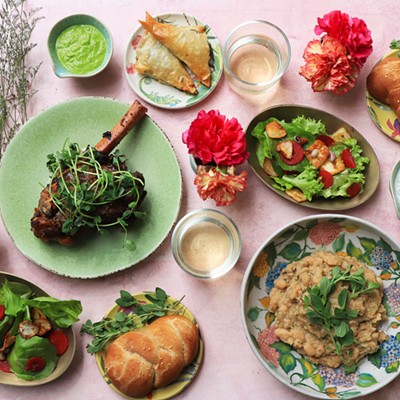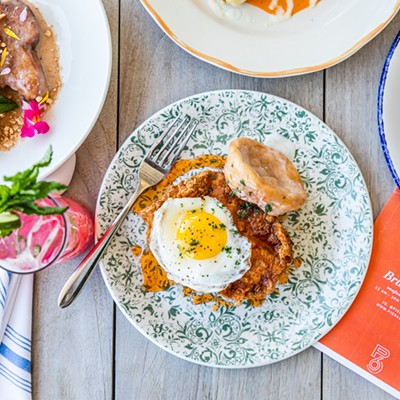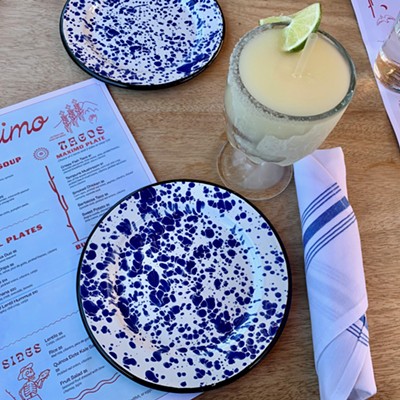Last week, as I was reading Katharine Shilcutt's review of Mai's downtown, one of the things that struck me as odd was the fact that she seemed to make a big to-do about the poor service, especially when I read: "But our service was unfriendly and hasty, as if the waitress couldn't wait to turn our table and get us the hell out of there."
Interestingly enough, I'd just visited Pho Ga Dakao a few days prior, a restaurant where she didn't mention poor service in her review. I recalled the service I'd received there and it was almost the exact description of hers at Mai's. To me, however, I didn't take hasty as poor service, or unsmiling as unfriendly; it's just the way things are at Asian restaurants, where the focus is more on food than service.
Generally, someone will come to your table, flip a notepad, ask you what you want, leave, come back with food, and maybe, if you're at one of those places that does it, bring the check to your table when you ask them to. At many places, like at Pho Ga Dakao, they won't bring a check to the table. When you finish eating, you walk up to the counter and pay. At Taiwanese and Chinese places in Chinatown, like Yummy Kitchen or San Dong, they are moving away from a service model altogether, and making everything self-serve.
I explained this in the Mai's review comments section as basically a cultural custom. It's a general known fact: you don't tip your waiters in China, and in other Asian countries. It's either no tip or very little, say five to ten percent. The "tipping culture," where food service people get paid little and rely on tips for a living, does not exist in these Asian countries. The service job therefore becomes simply that, a job that you work to get done.
As a result, service is brisk, matter-of-fact. There's generally no upselling, no "would you like a coffee or would you like some dessert?" Patrons don't linger over multi-course meals for hours. You can get a full 10-course Chinese banquet and people will dig in quickly and get the eating part over with. The service is the same: Quick, expedient. It has nothing to do with the type of patron you are or what your wearing, or even if you're a regular.
In fact, my measure of good service in an Asian restaurant is how quickly someone will acknowledge me, take my order, and bring my food out, because, for me, someone who's slow doesn't care what they're doing. It's the people who are fast and get the food quickly that take pride in their work, that are trying to do a good job. At Tan Tan, they strive for good service and what do I get? Before I have even finished my bowl of wonton soup, someone has already cleared it away. I speak as someone of Vietnamese heritage, who has travelled to Vietnam, Thailand, mainland China and Hong Kong. Ask any person who lives in these countries or has been and I'm sure they'll agree.
Just yesterday, I asked a Chinese friend for the sake of conversion: "Do you expect good service in an Asian restaurant?" My friend, who had just gotten back from a trip to Hong Kong, China, and Macau, replied, laughingly, "Hell, no."
So here's my position on service in your typical, run-of-the-mill, less-than-$10-a-plate Chinatown restaurant, whether it be Vietnamese, Chinese, Korean, Thai, Malaysian, Singaporean, and so on: Don't go in expecting good service in the way that you would get in an American establishment. Just be happy when you get your food quickly and they don't make you wait. If they smile and they're friendly, give them bonus points, but if they don't, try not to take it as rudeness, because they're not purposely being rude; it's just status quo.
Follow Eating Our Words on Facebook and on Twitter @EatingOurWords






